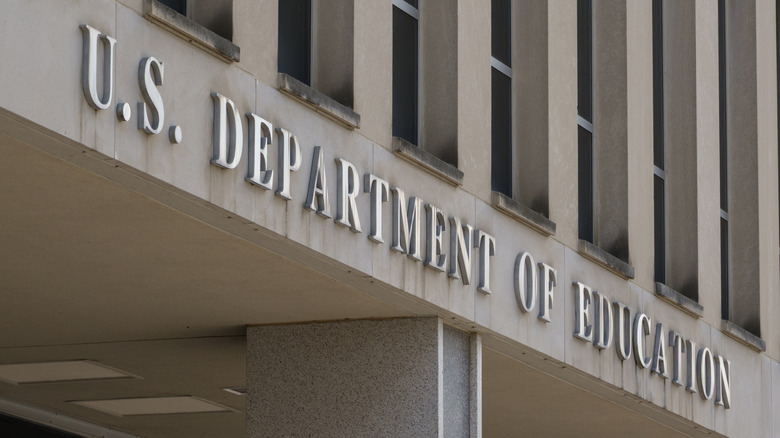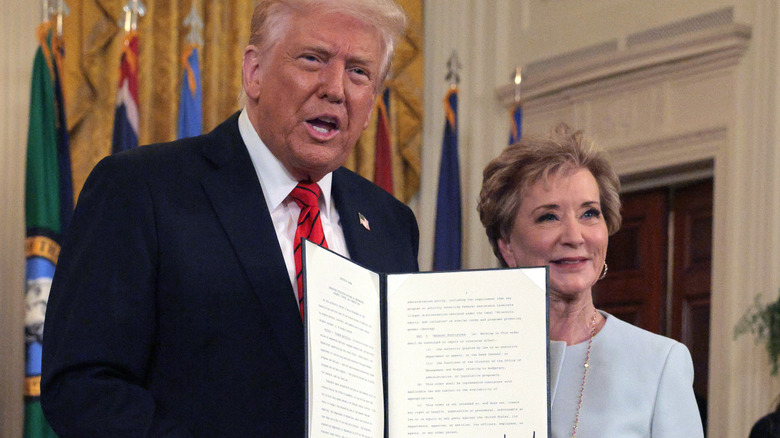New Student Loan Changes Could Affect Your Finances
The Department of Education announced big changes to federal student loan programs on November 6, 2025. These latest changes — to federal lending and borrowing limits for certain students — will not only affect current borrowers, but also significantly impact the future of higher education. Plus, these changes also affect existing repayment plans, with the Trump administration overhauling Obama and Biden-era repayment plans to create something known as the Repayment Assistance Plan (RAP) instead. Once the new rules are enacted, they will especially impact low-income borrowers. In particular, those who have not been required to make monthly repayments before are likely to find themselves on the hook for new minimum amounts every month. With that said, many low-income borrowers will ultimately see their loan rates go down under these new repayment plans due to the fact they will waive some existing interest.
These changes come after months of meetings discussing the implementation of President Donald Trump's narrowly passed "One Big Beautiful Bill Act" or OBBBA. The Reimagining and Improving Student Education (RISE) Committee parsed OBBBA's budget legislation, and devised rules that will affect borrowers starting in July 2026. For those who may have lost much sleep trying to decide between the best student loan repayment plans available, or even those who thought twice before aggressively paying off student loans, these new rules could be just one more student-loan induced headache to deal with. While, for others, new student loan rules could be the determining factor in what college or university they can attend, if any at all. In the end, these changes might be enough to make you wonder what would happen if you stopped making student loan payments entirely.
Borrowing changes to student loans under OBBBA
Based on OBBBA, and consensus by the RISE committee, graduate student borrowers will have new annual loan caps starting in July 2026. New borrowers will be able to borrow up to $20,500 for education at the graduate level per year, with a $100,000 aggregate limit, per the U.S. Department of Education announcement. Professional graduate students (like those pursuing medical or law degrees) will be able to borrow up to $50,000 per years, with a $200,000 aggregate limit. Prior to OBBBA's changes, graduate students could borrow up to $138,500 when pursuing a degree, and are now at a lifetime cap loss of $38,500. Meanwhile, professional students will see a rise from the pre-OBBB borrowing cap of $138,500 to $200,000, or an increase of $61,500.
The RISE committee is also eliminating the Grad PLUS program altogether, and is capping Parent PLUS Loans. Prior to changes written into the OBBBA, graduate students and guardians could use the PLUS program to borrow up to the full cost of the education being pursued. However, now guardians borrowing on behalf of students will be capped at $20,000 per year, or up to $65,000 per student. The OBBBA also levied a lifetime limit for federal loans, capping combined undergraduate and graduate borrowing at $257,500 per person.
What's next for these repayment changes
Notably, the OBBBA is slowly ending President Biden's Saving on a Valuable Education (SAVE) plan. By reducing the SAVE plan, SAVE borrowers will soon face interest, which they didn't have before. Those being forced to move off the SAVE plan, and into another repayment option, could end up causing a massive paperwork backlog at the Department of Education — where staff has already been slashed by more than half thanks to Trump and DOGE's money-"saving" efforts.
Under Secretary of Education Nicholas Kent specified in the Department of Education's announcement that the RISE committee's changes are intended to help the Department of Education "better align higher education with workforce needs." Kent also argued that these negotiations will "help drive a sea change in higher education by holding universities accountable for outcomes and putting significant downward pressure on the cost of tuition. This will benefit borrowers who will no longer be pushed into insurmountable debt to finance degrees that do not pay off." However, despite the committee's intention, these new rules could instead leave many would-be college students unable to attend altogether.
While the RISE committee confirmed it has made changes to its RAP option, as of mid-November 2025, it has not yet shared specifics with the public. The next step for the RISE committee is to enter a Notice of Proposed Rulemaking (NPRM) in the Federal Register for public comment.


